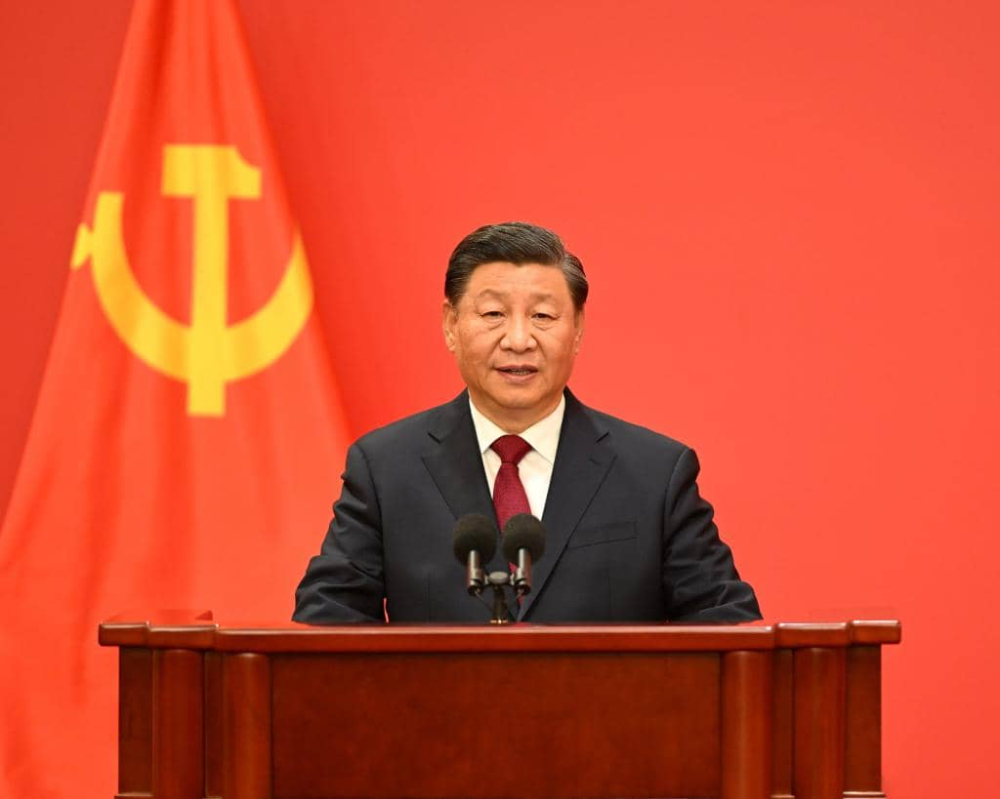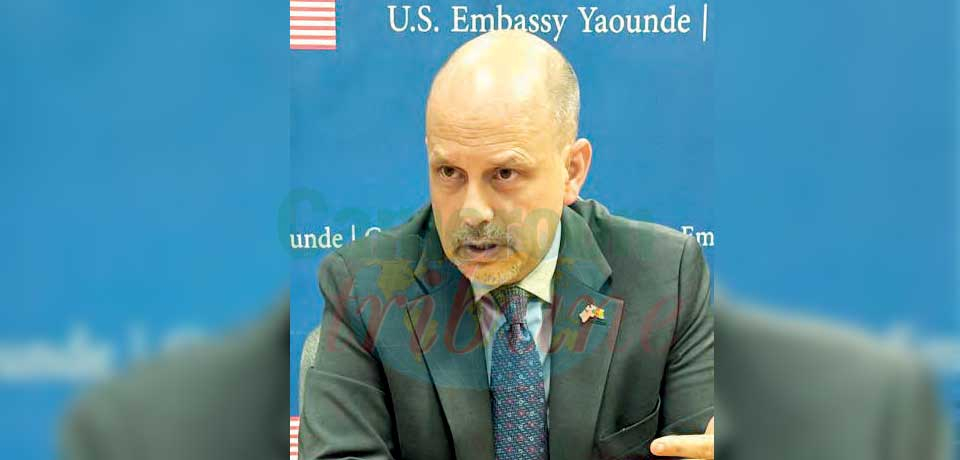Commentary: Spreading Global Values Of Multilateral Partnership
- Par Richard Kometa
- 24 Oct 2022 12:36
- 0 Likes

One of the key messages from the 20th National Congress of the Communist Party of China (CCP) that took place from 17-23 October, 2022 was the reaffirmation by President Xi Jinping to remain glued to his policy of working with China’s friends.
In the past years, China has persistently focused on the need to ensure that efforts towards building alliances around common goals that benefit humanity remain primordial in its foreign policy objectives. The President of the People’s Republic of China came back elaborately on it during the party congress, understandably so because the congress served as the core of policy ambitions both for the country and the establishment of key principles for cooperation with the rest of the World. This could also be illustrated by the fact that friendly countries from around the world, including Cameroon, were invited to be part of the Congress either through the presence of their diplomatic representations in China or having delegates from their countries travel to China for the event.
President Xi Jinping recalled that China remains committed to its fundamental national policy of opening to the outside world and pursues a mutually-beneficial strategy of opening up. It strives to create new opportunities for the world with its own development, sent home a strong message. Besides holding several gatherings with leaders from various segments across the globe as a way of building friendship towards progress, the country has taken initiatives to spread its technology to other parts of the world that could be in need. There could not be any better demonstration of such plans than within the United Nations Organisation (UNO) where a high-level meeting on Juncao Technology took place on 18 April, 2019.
Holding as part of efforts to support the UN Sustainable Development Goals (SNDs) adopted in 2015 as Agenda 2030, the high-level meeting on Juncao technology not only helped to underscore the importance of the innovation from the Fujian Agriculture and Forestry University (FAFU), but equally exposed how it could benefit the world given that the experiment had already worked in some 100 countries in Asia and Africa. Many have qualified Juncao as a masterpiece due to its transformational advantages and multi-sectorial virtues. The purposeful and fundamental research initiative that is firmly anchored on the Belt and Road Initiative is a Chinese endeavour to boost South-South cooperation. Reports recall that it took off since President Xi, as Governor of Fujian in 2000 authorised a number of higher education institutions to group into FAFU. Today, the University has grown to world standards with scholarships offered to 200 foreign students. They have not only discovered new varieties of sugar cane, sweet potatoes, groundnuts, tea and so on, Professor Lin Zhanxi of FAFU invented a game-changing technology called Juncao, a Chinese name for mushroom (Jun) and herbs (Cao) which combine to produce mushrooms with nutritive and medicinal qualities as well as serving for animal pasture.
Invariably, the mushroom has taken an international dimension by serving economic, diplomatic, political, and ecological functions in Chinese policy ambitions under President Xi. According to Mrs Maria Fernanda Espinosa Garces, President of the 73rd Session of the UN General Assembly speaking at a UN High-level Meeting on Juncao in 2019, the technology falls in line with the, “Emblematic of the China’s Belt and Road Initiative. It supports the 2030 Agenda for the Sustainable Development – making an important contribution to several SDG goals and targets: from poverty eradication to clean energy, gender equality to preserving biodiversity.” By helping to provide a vital source of food and economic development tool to farmers, women, children and persons suffering from various forms of disabilities, Juncao is taking the SDG battle to local and community levels where it matters most.
The agricultural technology replaces wood with grass through the traditional cultivation of edible and medicinal fungi using sawdust as ‘soil’ and also capable of promoting the development of livestock husbandry and livestock feed production through grass for cattle, clean energy that addresses the issue of climate change since it by-product can serve as cooking fuel. In addition, it has been useful in fighting desertification and protecting ecological environment as statistics from FAFU pointed out that; “A ton of dried jumbo Juncao can produce over 450 cubic metres of biogas. Since the amount of CO2 that Juncao absorbs during its growth offsets the amount it emits in burning, it has zero emission and zero pollution and is thus a source of clean energy that can help address the challenges of climate change.”
A concrete demonstration of the vitality of the technology has been its adoption by countries in Africa and Asia. The discussions at the United Nations equally pointed to its endorsement at the global stage. This is just one of the multiple initiatives that the Chinese President has been able to put at the disposal of humanity to make life much be...
Cet article complet est réservé aux abonnés
Déjà abonné ? Identifiez-vous >
Accédez en illimité à Cameroon Tribune Digital à partir de 26250 FCFA
Je M'abonne1 minute suffit pour vous abonner à Cameroon Tribune Digital !
- Votre numéro spécial cameroon-tribune en version numérique
- Des encarts
- Des appels d'offres exclusives
- D'avant-première (accès 24h avant la publication)
- Des éditions consultables sur tous supports (smartphone, tablettes, PC)














Commentaires